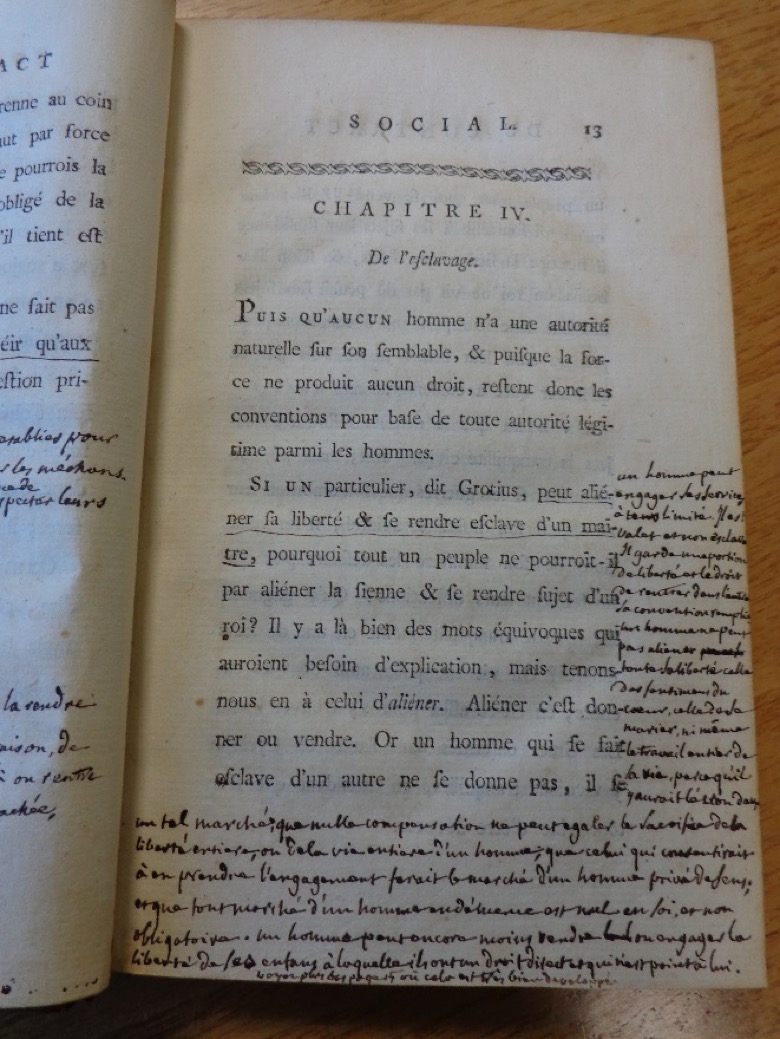In June 2017, I obtained a Henry Belin Du Pont Research Grant to visit the Hagley Library for two weeks to begin research on the politics of the Physiocratic movement. This economic theory, put forth by a group of French economists in the 18th century, held that the wealth of nations derived from the land and its agricultural products.
As a prominent physiocrat, Pierre Samuel du Pont de Nemours was of particular interest to me. In his papers and books, I consulted foundational documents such as Rousseau’s Principes du droit politique (1762)—with du Pont’s own handwritten notes in the margets.

The first step of my inquiry on the politics of Physiocracy was to study the specificity of du Pont’s political thinking. My current project will focus on the political relationship between du Pont and Anne Robert Jacques Turgot (1727-1781). Du Pont and Turgot were two statesmen: Turgot was appointed Intendant of Limoges in 1761 and then Minister in 1774; du Pont served as Inspector General of Commerce under Louis XVI and President of the National Constituent of Assembly.
My challenge in this project is first to understand how du Pont and Turgot viewed the rival political models of their time: the British constitution, the American republic, and the French government. Second, I hope to uncover how Turgot’s ideas may have influenced du Pont’s own.
Alexandra Hyard is associate professor in economics at the University of Lille and a member of CLERSÉ, the Lille Center for Sociological and Economic Research and Study (Centre Lillois d'Etudes et de Recherches Sociologiques et Economiques) of the National Center for Scientific Research (CNRS).
